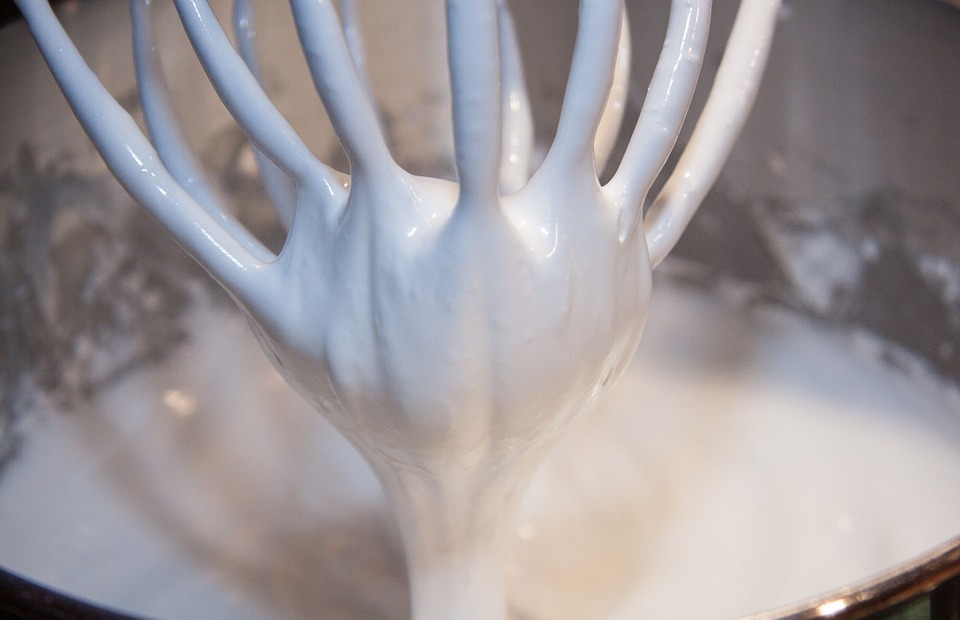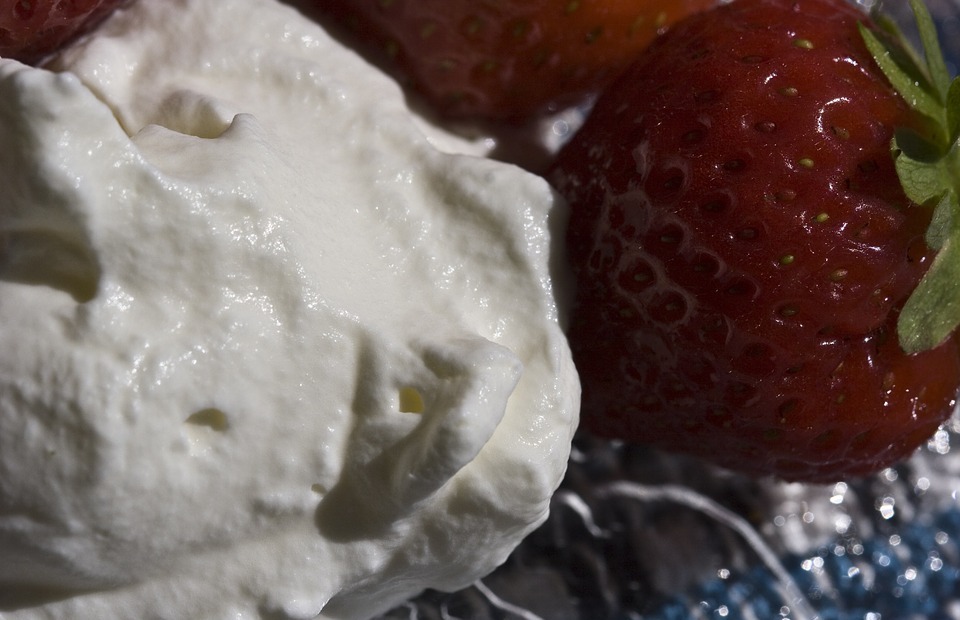This article explores the safety of whipped cream for cats, examining its nutritional content, potential risks, and alternative options. We'll also address common questions and provide guidance for cat owners.
Part 1: Understanding the Composition of Whipped Cream

1.1. Fat and Calories: A High-Calorie Treat
Whipped cream is primarily composed of fat and calories, with minimal nutritional value for cats. It's typically made from heavy cream, which is high in saturated fat, providing a significant calorie boost. Cats require some fat in their diet, but excessive consumption can lead to obesity and related health problems.
1.2. Sugar: A Sweet Temptation with Potential Health Risks
Whipped cream often contains added sugar, which is detrimental to cats' health. Cats lack the enzymes necessary to properly digest sugar, leading to potential complications like dental issues, obesity, and diabetes.
1.3. Lactose: A Digestive Challenge
Whipped cream contains lactose, a sugar found in dairy products. Most cats are lactose intolerant, meaning they lack the enzyme lactase to break down lactose. This can lead to digestive upset, including diarrhoea, vomiting, gas, and abdominal discomfort.
Part 2: The Potential Risks of Whipped Cream for Cats

2.1. Digestive Issues: A Common Concern
The high-fat content, sugar, and lactose in whipped cream can cause various digestive problems in cats. This includes diarrhoea, vomiting, gas, bloating, and even pancreatitis in severe cases. Cats with pre-existing digestive conditions are particularly susceptible to these issues.
2.2. Obesity and Weight Gain: A Long-Term Threat
Excessive consumption of high-calorie foods like whipped cream can contribute to obesity in cats. This can lead to a cascade of health problems, including joint issues, diabetes, heart disease, and decreased life expectancy.
2.3. Pancreatitis: A Serious Medical Condition
In rare cases, consuming large amounts of high-fat foods like whipped cream can trigger pancreatitis in cats. This is a serious medical condition that involves inflammation of the pancreas, potentially leading to life-threatening complications.
Part 3: Are There Any Safe Ways for Cats to Consume Whipped Cream?
3.1. Small Amounts of Plain Whipped Cream: A Cautious Approach
While generally not recommended, a tiny amount of plain whipped cream (without added sugar or artificial flavors) might be safe for a cat in moderation. However, it's crucial to consult with a veterinarian before offering any human foods to your feline companion.
3.2. Importance of Veterinary Consultation: Seeking Professional Guidance
It's essential to consult with your veterinarian before introducing any new food, including whipped cream, to your cat's diet. They can provide personalized advice based on your cat's age, breed, weight, health history, and any pre-existing conditions.
3.3. Alternative Treats: Safer Options for Feline Delights
There are numerous safer and healthier alternatives to whipped cream for cats. Cat-specific treats designed for their nutritional needs are readily available and offer a delicious and safe way to reward your feline friend.
Part 4: Recognizing Signs of Illness After Whipped Cream Consumption
4.1. Digestive Distress: Watch for These Symptoms
If your cat exhibits signs of digestive upset after consuming whipped cream, such as diarrhoea, vomiting, gas, bloating, or changes in bowel movements, it's crucial to seek veterinary attention immediately.
4.2. Other Potential Symptoms: A Comprehensive Check-Up
Monitor your cat for other symptoms, including lethargy, loss of appetite, abdominal pain, excessive licking or grooming, or changes in behaviour. These might indicate a more serious health problem.
Part 5: The Importance of Veterinary Care for Whipped Cream Ingestion
5.1. Prompt Action: Seeking Immediate Veterinary Attention
If your cat has ingested whipped cream, contact your veterinarian immediately, especially if they exhibit any signs of illness. Early intervention can often prevent complications and ensure a quicker recovery.
5.2. Tailored Advice: Personalized Treatment Recommendations
Your veterinarian will assess your cat's individual situation, including the amount of whipped cream ingested, their age, breed, and health history, to provide tailored treatment recommendations.
5.3. Preventive Measures: A Safe and Healthy Diet
To prevent potential health risks, prioritize a balanced and nutritious diet for your cat. Consult with your veterinarian for recommendations on appropriate food and treats tailored to your cat's specific needs.
Part 6: Conclusion: Prioritizing Safety and Well-being
6.1. Whipped Cream: A No-Go for Cats
While a small amount of plain whipped cream might be tolerated in moderation, it's generally not recommended for cats due to its high-fat content, lactose, and potential health risks.
6.2. Choosing Cat-Specific Treats: Safe and Delicious Alternatives
Prioritize cat-specific treats designed for their nutritional needs. These treats provide a safe and enjoyable alternative to human foods, ensuring your feline companion receives the necessary nutrients and avoids potential health risks.
Part 7: FAQs: Addressing Common Concerns
7.1. Can cats eat whipped cream with sugar?
No, it's not safe for cats to eat whipped cream with added sugar. Sugar can contribute to dental problems, weight gain, and other health issues in cats.
7.2. Can kittens eat whipped cream?
Kittens are especially vulnerable to the risks associated with whipped cream. Their digestive systems are still developing, and they are more susceptible to digestive issues and obesity.
7.3. Is it OK to give my cat a lick of whipped cream?
Even a small lick of whipped cream can potentially trigger digestive problems in cats, especially if they are sensitive to dairy products.
7.4. What are some safe alternatives to whipped cream for cats?
There are many safe and healthy alternatives to whipped cream for cats, including cat-specific treats, cooked chicken or fish, plain and unsweetened yoghurt, and small amounts of cooked vegetables (without added seasonings).
7.5. My cat ate whipped cream, what should I do?
If your cat has ingested whipped cream, monitor them closely for any signs of illness. If they exhibit digestive upset or other symptoms, contact your veterinarian immediately.
7.6. Can whipped cream be fatal to cats?
While whipped cream is unlikely to be fatal to a cat in most cases, it can lead to serious health complications, especially in cats with pre-existing conditions.
7.7. Is whipped cream better than chocolate for cats?
Chocolate is extremely toxic to cats, while whipped cream can pose some risks but is less dangerous. However, both should be avoided.
Everyone is watching
-

Are Cat Ribs Flexible? Understanding Their Anatomy
CATS & KITTENSThis article delves into the fascinating world of feline anatomy, exploring the flexibility of cat ribs and ho...
-

Can Cats Eat Bananas? (Everything You Need to Know)
CATS & KITTENSThis article dives into the intriguing question of whether cats can safely enjoy the sweet, yellow fruit, bana...
-

Cat Lifespan: How Long Do Cats Live?
CATS & KITTENSThis comprehensive guide explores the factors influencing the lifespan of our feline companions, providing ins...
-

Can Cats Get COVID-19? What You Need to Know
CATS & KITTENSThis article will delve into the fascinating world of feline COVID-19 susceptibility. We'll explore whether ca...
-

Can Cats Eat Eggs? A Complete Guide to Egg Safety for Your Feline Friend
CATS & KITTENSWhen it comes to treating our furry companions, we all want to ensure we're doing what's best for them. Eggs...
